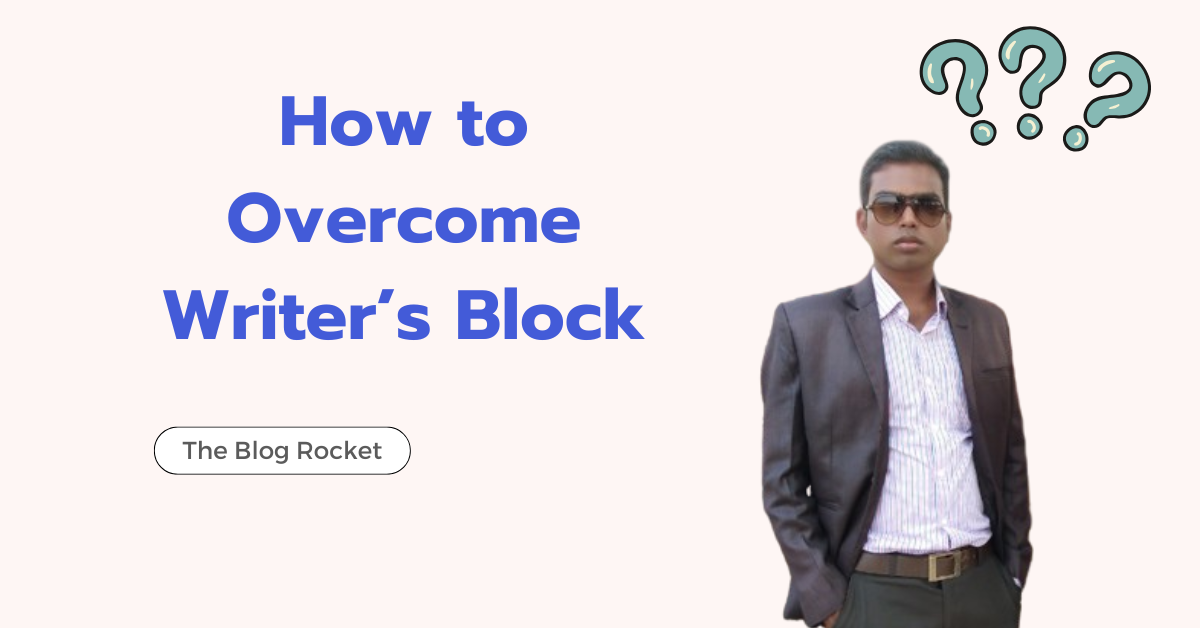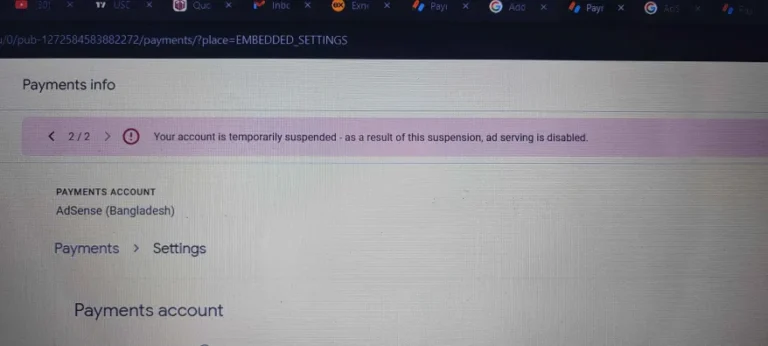I remember the day I hit rock bottom with writer’s block.
I stared at my laptop screen, the cursor blinking mockingly on a blank document. My deadline was looming, but my mind felt as empty as that white page. I’d tried to write for hours but needed help to get everything right.
Frustration bubbled up inside me.
Was I losing my touch?
Did I need to remember how to string words together?
That’s when I decided enough was enough. I needed to find ways to overcome this creative slump.
Through trial and error (and a lot of coffee), I discovered 15 techniques that helped me break through the block and get my creativity flowing again.
Today, I’m sharing these writing tips with you.
Whether you are a novice writer or a seasoned pro, these strategies will help you conquer writer’s block and rediscover the joy of putting words on paper.
Ready to unleash your creativity?
Let’s dive in!
Contents
- 1 What Exactly Is Writer’s Block?
- 2 Why Does Writer’s Block Happen?
- 3 15 Ways to Kick Writer’s Block to the Curb
- 3.1 1. Free Your Mind with Freewriting
- 3.2 2. Shake Things Up: Change Your Environment
- 3.3 3. Create a Writing Routine
- 3.4 4. Break It Down: Tackle Smaller Tasks
- 3.5 5. Try Mind Mapping
- 3.6 6. Feed Your Mind: Read for Inspiration
- 3.7 7. Clear Your Mind: Practice Mindfulness and Meditation
- 3.8 8. Two Heads Are Better Than One: Collaborate with Other Writers
- 3.9 9. Change Your Writing Tools
- 3.10 10. Set Realistic Goals
- 3.11 11. Get Moving: Take Breaks and Exercise
- 3.12 12. Time It Right: Use the Pomodoro Technique
- 3.13 13. Embrace the Mess: First Drafts Don’t Need to Be Perfect
- 3.14 14. Step into Someone Else’s Shoes: Explore Different Perspectives
- 3.15 15. Don’t Go It Alone: Seek Feedback and Support
- 4 Wrapping It Up: You’ve Got This!
- 5 FAQs About Writer’s Block
What Exactly Is Writer’s Block?
Before we dive into the solutions, let’s talk about what we’re dealing with.
Writer’s block is that pesky mental state where you can’t seem to put words on paper (or screen). It’s not just about running out of ideas – it can also be about feeling stuck, unmotivated, or downright scared of writing.
Here’s a little secret: even the most famous writers face this challenge. J.K. Rowling, Stephen King, and Maya Angelou discussed struggling with writer’s block. So, if you’re dealing with it, you’re in good company!
Why Does Writer’s Block Happen?
There’s no single cause of writer’s block. It can stem from:
- Perfectionism (wanting every word to be just right)
- Fear of failure (what if no one likes what I write?)
- Lack of inspiration (feeling like you’ve run out of ideas)
- Burnout (pushing yourself too hard for too long)
- Distractions (hello, social media!)
Understanding what’s causing your block can help you tackle it more effectively. But don’t worry if you’re unsure – the strategies I’m about to share can help regardless of the cause.
15 Ways to Kick Writer’s Block to the Curb
1. Free Your Mind with Freewriting
I can’t count how often freewriting has helped me break out of a rut. It’s simple: write whatever comes to mind for a set period—10 to 20 minutes—without worrying about grammar, structure, or making sense. The point is to get your thoughts flowing.
When I’m stuck, I love to use freewriting. Here’s how it works:
- Set a timer for 10-15 minutes.
- Start writing whatever comes to mind – no editing, no judgment.
- Keep your hand moving, even if you’re writing “I don’t know what to write” repeatedly.
The magic of freewriting is that it bypasses your inner critic. It’s like clearing out the mental cobwebs, allowing fresh ideas to flow. Often, it’s those raw, unfiltered ideas that spark something more significant.
2. Shake Things Up: Change Your Environment
Sometimes, the problem isn’t your writing; it’s your surroundings. Sitting in the same place daily can make your mind feel as stuck as your feet.
I’ve noticed that changing where I write, like moving from my desk to the kitchen table, can make a huge difference.
I remember once being stuck on a story for days. Then I packed up my laptop and headed to a local café. The buzz of conversation, the smell of coffee – suddenly, the words started flowing!
Try writing in different places:
- A quiet library
- A bustling café
- A peaceful park
- A cozy corner of your home
A fresh environment can bring new energy and inspire creativity.
3. Create a Writing Routine
Our brains love routine. You’re training your mind to be creative at certain times by setting a regular writing schedule. Over time, your brain will get used to this schedule and may start cooperating.
My routine looks like this:
- Wake up at 6 AM
- Make a cup of tea
- Write for an hour before checking emails or social media
Find a routine that works for you. A structured routine leaves little room for procrastination or perfectionism. It teaches your brain to show up, even when inspiration is absent.
4. Break It Down: Tackle Smaller Tasks
Big writing projects can feel overwhelming. It might be because the task ahead looks too big.
When working on my first novel, I often felt paralyzed by the sheer size of the task. The solution? Break it down into smaller, manageable chunks.
For example, you could tell yourself, “Today, I’ll write 200 words,” or “I’ll finish the introduction.” This would give you a sense of achievement and keep the momentum going without the pressure.
Instead of “write a chapter,” try:
- Describe the main character’s appearance
- Write the opening scene
- Outline the key plot points
Tackling these smaller tasks can help you build momentum and confidence.
5. Try Mind Mapping
Writing prompts are like kindling for your creativity. They give you a starting point, a little spark to get the fire going. I keep a jar of writing prompts on my desk for those days when ideas just won’t come.
Here are a few to get you started:
- Write about a character who finds a mysterious key
- Describe your perfect day in vivid detail
- Write a story that begins with “The door creaked open…”
If you’re stuck, mapping out your thoughts can reveal connections or directions you need to consider.
Plus, it’s a great way to reignite your creativity by tapping into a more visual form of thinking.
[Learn More >> 50 Writing Prompts to Spark Your Creativity]
6. Feed Your Mind: Read for Inspiration
Stephen King once said, “If you don’t have time to read, you don’t have the time (or the tools) to write.” Reading is like fuel for your writing engine. It exposes you to new ideas and different writing styles and can spark creativity.
Whenever I hit a wall, I turn to reading. Reading can spark new ideas, whether it’s a favorite author, a blog, or even just a chapter of a book. It shifts your focus away from the frustration of writer’s block and gives your mind something else to chew on.
Reading lets you see how other writers solve problems with structure, voice, and style. It’s like a mini refresher course on writing, but it’s fun!
7. Clear Your Mind: Practice Mindfulness and Meditation
Sometimes, writer’s block comes from a mind that’s too full – of worries, distractions, or racing thoughts. Mindfulness and meditation can help clear the mental clutter, making room for creativity.
Try this simple mindfulness exercise:
- Sit comfortably and close your eyes
- Focus on your breath for 5 minutes
- When thoughts come (and they will), gently redirect your focus to your breath
I do this every morning before I start writing, and it helps me approach the page with a more precise, calmer mind.
8. Two Heads Are Better Than One: Collaborate with Other Writers
Writing doesn’t have to be a solitary activity. Collaborating with other writers can bring fresh perspectives and energy to your work. Join a writing group, attend workshops, or find a writing buddy.
I meet with my writing group every week. We share our work, offer feedback, and brainstorm ideas. It’s incredible how often I leave those meetings with solutions to problems I’ve been struggling with.
9. Change Your Writing Tools
Staring at the same screen day in and day out can sometimes be enough to stall creativity.
If you usually type on a computer, try writing by hand.
If you typically write with pen and paper, give dictation a shot.
Changing your writing medium can engage different parts of your brain and spark new ideas.
I’ll switch from typing to writing with a pen and paper when I feel like it. Something about the tactile experience helps engage a different part of my brain.
You could also try changing the font or using a writing app like Scrivener or Google Docs. Switching things up, even in small ways, can give you a new perspective.
10. Set Realistic Goals
Sometimes, writer’s block comes from setting unrealistic expectations. Instead of “I’m going to write a bestseller,” try “I’m going to write 500 words today.”
SMART goals work well for writing:
- Specific
- Measurable
- Achievable
- Relevant
- Time-bound
My daily goal is 1000 words. It’s challenging enough to push me but not so daunting that I feel overwhelmed.
11. Get Moving: Take Breaks and Exercise
It might seem counterintuitive, but sometimes, the best thing you can do for your writing is to step away from it. Physical activity can boost mood, reduce stress, and spark creativity.
I make sure to take regular breaks during my writing sessions. A quick walk around the block or a 10-minute yoga session can work wonders for clearing my mind and refreshing my creativity.
12. Time It Right: Use the Pomodoro Technique
The Pomodoro Technique is a time management method that can be super helpful for writers. Here’s how it works:
- Set a timer for 25 minutes
- Write until the timer goes off
- Take a 5-minute break
- Repeat
After four “pomodoros,” take a more extended break of 15-30 minutes.
This technique helps me stay focused and makes the writing task less daunting. Knowing I have a break coming up also motivates me to make the most of my writing time.
[Learn More >> Time Management Techniques for Writers]
13. Embrace the Mess: First Drafts Don’t Need to Be Perfect
One of the biggest causes of writer’s block is perfectionism. Remember, first drafts are supposed to be messy! Your job is to get the words down on paper. You can always revise and polish it later.
I like to think of my first draft as a lump of clay. It doesn’t have to be pretty – it just needs to exist so I have something to shape and refine.
14. Step into Someone Else’s Shoes: Explore Different Perspectives
If you’re stuck on a particular piece of writing, try looking at it from a different angle. If you’re writing fiction, try telling the story from another character’s point of view. Consider how someone with a different background might approach the topic if it’s non-fiction.
This technique has helped me overcome writer’s block countless times. Shifting perspective can unlock new ideas and breathe life into your writing.
15. Don’t Go It Alone: Seek Feedback and Support
Sometimes, all you need is fresh eyes on your work. Sharing your writing with trusted friends, family, or fellow writers can provide valuable feedback and encouragement.
I have a small group of beta readers who review my early drafts. Their insights often help me see my work in a new light and motivate me to keep going when I feel stuck.
Wrapping It Up: You’ve Got This!
Remember, writer’s block happens to everyone. It’s not a sign that you’re a terrible writer or should give up. It’s just a temporary obstacle, and with these strategies, you have the tools to overcome it.
The key is persistence. Keep showing up, even when it’s tough, and eventually, you’ll find your rhythm again. The famous writer Jodi Picoult once said, “You can always edit a bad page. You can’t edit a blank page.”
Which of these strategies are you going to try first?
Do you have any other tips for overcoming writer’s block?
I’d love to hear your thoughts and experiences in the comments below.
Happy writing!
FAQs About Writer’s Block
A: Writer’s block has no set duration. It can last hours, days, or even weeks. The key is to keep working at it and not get discouraged.
A: Sometimes, writer’s block can be a symptom of stress, anxiety, or burnout. If you’re consistently struggling to write, it might be worth talking to a mental health professional.
A: Absolutely! Sometimes, stepping away from your writing can help you return to it with fresh eyes and new ideas.
A: While no magic food cures writer’s block, staying hydrated and maintaining a balanced diet can help keep your brain functioning at its best. Some people find that a cup of coffee or tea helps them focus.
A: Regular writing practice, maintaining a healthy work-life balance, and developing a consistent writing routine can all help prevent writer’s block. But remember, it’s a normal part of the writing process, so don’t be too hard on yourself if it happens.






